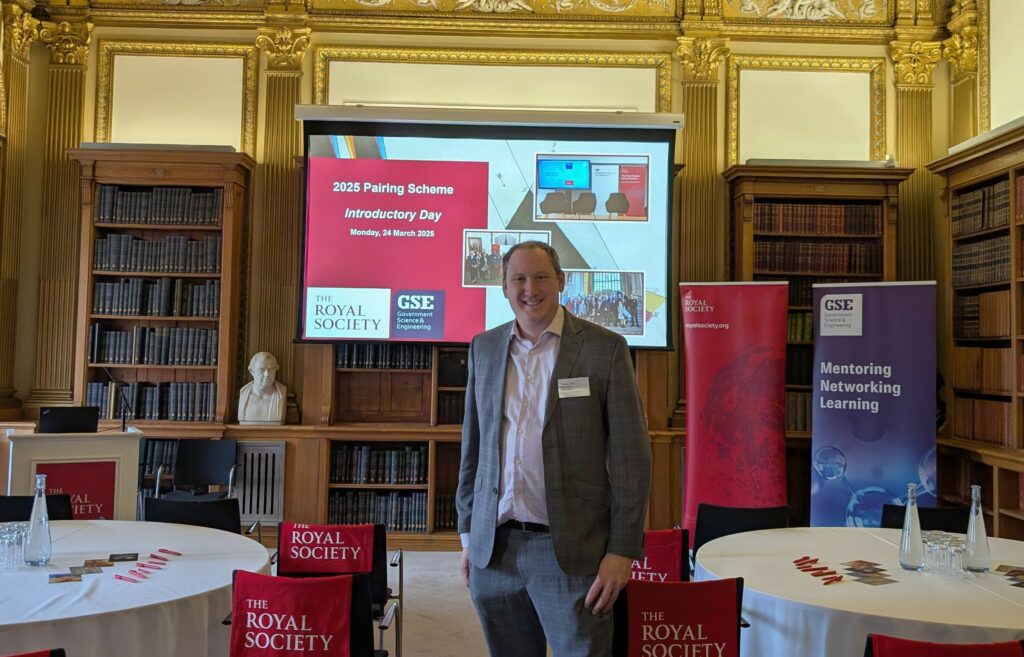
Professor John Collomosse spent a week (24 – 27 March) in Westminster as part of the prestigious Royal Society Pairing Scheme, in partnership with the Government Office for Science.
As one of 30 UK scientists chosen for the scheme, he gained a behind the scenes insight into how policy is formed, shadowing a policy maker in the Department for Science, Innovation and Technology (DSIT) policy and capability team in AI and Disinformation.
Read John’s experience of the week in his blog…..
“Last week, I had the unique opportunity to participate in the Royal Society’s Pairing Scheme, working alongside parliamentarians in the Department for Science, Innovation and Technology (DSIT). This team is responsible for developing capabilities and policies to address counter-disinformation and online harms, an area closely aligned with DECaDE’s research into digital supply chains and content provenance.
Over the past few years, DECaDE has made significant policy contributions by advising the UK Government on emerging digital issues. For example, our researchers have worked closely with the Cabinet Office on the RFIT programme, submitted multiple responses to open government consultations (including topics such as Digital Assets and AI & Copyright), and contributed evidence at several parliamentary roundtables and select committee meetings.
The Royal Society scheme complemented our ongoing work by offering an opportunity to embed within a team at the heart of DECaDE’s multi-year research programme, which aims to tackle fake news and disinformation. Our focus includes tracing the origins (provenance) of media to identify and prevent the spread of false or misleading content. DECaDE has collaborated extensively with industry partners to develop open-source tools, such as robust watermarking and fingerprinting software, to address these challenges. However, as with many socio-technical issues, technology alone is not enough; sustained engagement with policymakers is crucial to drive regulation, encourage technology adoption and enhance digital literacy.
During my time in DSIT, I participated in workshops on emerging disinformation technologies and met with policymakers guiding legislation on online harms and related areas such as the debate around potential copyright reform currently at forefront of AI policy discussions. Media provenance can play a key role not only in combating disinformation but also in ensuring fair use of data for AI training, and may provide the much needed technical solutions require to underpin policy innovation in this space.
The week gave me new insights into the information architecture connecting the civil service and ministers, and how best to engage as a researcher, to achieve meaningful policy impact. In these contexts, scientific experts often serve to describe the “art of the possible” – i.e. what technology can deliver today versus what it might deliver tomorrow. Keeping the message concise and outcome-focused helps retain its clarity as it moves through the decision-making process.
Looking ahead, provenance has the potential to do more than just counter disinformation. It can also help clarify ownership of content and enable fair compensation for its re-use, particularly in large-scale AI training. I’m proud of the multidisciplinary research DECaDE has undertaken in this space, and I look forward to seeing how our ongoing collaborations will continue to shape policy and practice in these critically important areas.”

